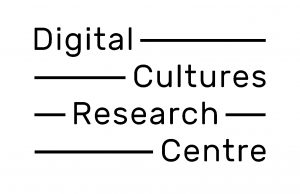Submissions
Call for Submissions
We invite submissions of moving image work on film, video and new media platforms. We feel strongly that the function of Screenworks is to provide an opportunity for practice research to undergo the equivalent rigorous peer-review process to that of traditional publication, and fully understand contributors’ need to evidence the impact and significance of their practice as research. Where submissions are documentation of interactive or installation work we encourage producers to consider the problems of documentation as part of the research process. We welcome work from doctoral students and post-doctoral researchers, as well as those at the cutting edge of practice research both nationally and internationally.
Guidelines for Contributors
Please submit via the online submission form linked above and read the following guidelines:
Practice Component
Videos or video documentation of other practice must be uploaded to Vimeo, even if it is available online elsewhere. If you do not already have an account, you will need to join in order to upload your work. Please see the Vimeo Compression page for guidance on optimising your upload. You can then include the URL and, if necessary, the password for the video in our online submission form. Only if and when your work is accepted for publication will we make it available on the Screenworks website.
Please note that should your work be accepted for publication you will need to update the Vimeo privacy settings to allow us to embed it on our website. Contributors take full responsibility for ensuring that their submissions adhere to UK copyright guidelines.
If your work is web-based, then simply supply the URL for review purposes. If your work takes any other form (e.g. an app, screen-based art installation or performance) or you have a problem with uploading it to Vimeo, then please contact us to arrange an alternative review method. We are keen to showcase as many pieces of high quality practice research as we can. Where submissions are documentation of interactive or installation work we encourage contributors to consider the problems of documentation as part of the research process.
From Vol 12 onwards, once the peer review process is completed, the audio-visual work will need to be captioned by the author prior to publication. We ask that authors also provide a descriptive transcript of the final video. Please note that captions are not required for the submission of the work for peer review, unless a reviewer requests captions so that they can access the work. Please see our Accessibility Policy for more information.
Supporting Research Statement
Statements of up to 2000 words should outline Research Questions, Context, Methods, Outcomes and Impact – although we also welcome the development of alternative ways of writing about practice which can identify new knowledge, research contexts and rigour – as long as they clearly identify the research in your submission. Please refer to our style guide before submitting.
There are many different kinds of screen media practice research. Our aim is to generate “new knowledge” in Communication, Media and Cultural Studies, Art and Design, Performing Arts and related fields. The purpose of the statement is not to “explain” the screenwork, but rather to offer a “route map” of the research process, as well as a means to provide evidence for the dissemination and wider impact of the practice.
Peer Review Process
All work submitted to Screenworks undergoes rigorous peer review, based on initial editor screening and refereeing by at least two anonymous referees. Both the statement and practical work are subject to open but anonymous peer review selected from our growing list of academic reviewers representing scholar practitioners working across the field of screen media both in the UK and internationally. Reviewers will have the choice of recommending publication of both work and research statement, acceptance of work with minor rewrites of statement required, invitation to resubmit both in reworked form or of rejecting.
In the case of successful submissions, the reviews are published online alongside the practical work and supporting research statement. The aim is that, through this process, criteria for research will be generated by the community over a period of time – that we will use a dialogic model of criteria generation and research. The process of open reviewing is intended to promote an active, concrete dialogue within the community of screen media scholar practitioners as to how our research is constituted, defined and disseminated.
Submission Deadlines
Screenworks is published on a rolling basis. This means that in the spirit of reactive online publishing we will review and publish work as it is comes in, rather than waiting for a full volume before publication.
In addition to the rolling volume, we also publish themed Special Issues. Please see our current call for practice for our special issue on Musicology on Screen, the deadline for which is 1 February 2022 for publication in July 2022.
Our first Special Issue, Volume 7.3, was on Aesthetics/Politics/Activism/Art: What is Radical Filmmaking? Our second Special Issue, Volume 8.2, was on the theme of Digital Ecologies and the Anthropocene edited by Alex Nevill in partnership with guest editors Charlie Tweed (Bath Spa University) and Joshua McNamara (University of Melbourne). Our third Special Issue Volume 10.2 is on the theme of Practice Pedagogies, edited by Lucy Leake, in collaboration with the Journal of Media Practice and Education. If you are interested in collaborating on a Special Issue then please see our Special Issues Policy.
Screenworks is supported by the Moving Image Research Group and the Digital Cultures Research Centre at the University of the West of England, UWE Bristol.




